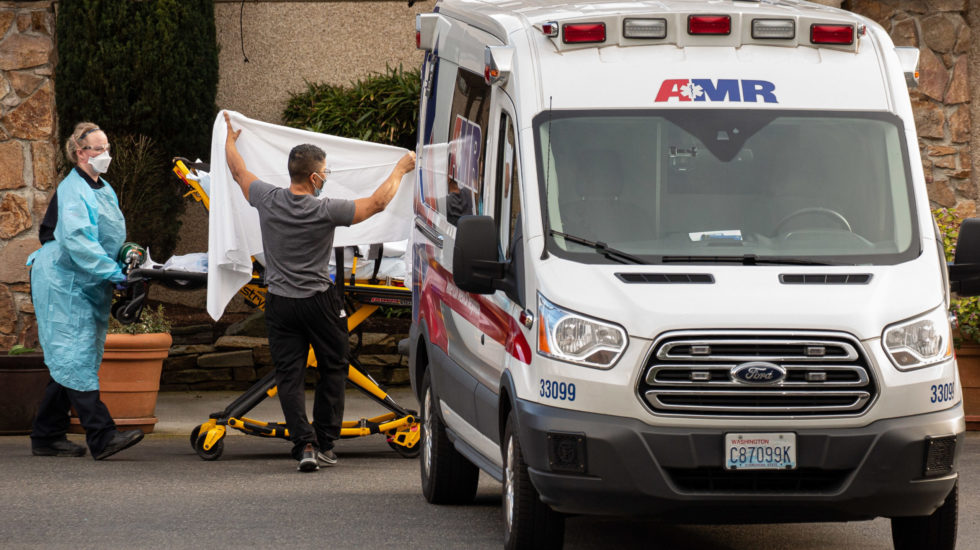The experts were right. Warnings of a looming pandemic of the coronavirus Covid-19 appear to have been spot-on.
As of Monday morning, more than 3,000 people have died in countries around the world after being infected by the virus. Monday afternoon we learned that there are six deaths in the U.S., all in the state of Washington.
Over the weekend, reports CNN, “New cases of the virus were announced in Oregon, Rhode Island, Washington state, New York and Florida … bringing the U.S. total to 89 as of Monday morning, up from 65 on Friday night.”
The new cases prompted emergency declarations in Washington and Florida. Schools closed for cleaning in greater Seattle, Portland OR and Rhode Island.
The total number of infections globally is now approaching 90,000, though the rate of increase has slowed dramatically in China, where the vast majority of the deaths have occurred.
The Centers for Disease Control (CDC) has warned Americans not to travel in mainland China, South Korea, Italy or Iran, and to reconsider going to Japan.
The hardest-hit place on the planet remains in and around the city of Wuhan, China, the epicenter of the global outbreak.
Covid-19 is a new variety of a huge family of coronaviruses that make people vulnerable to everything from the common cold to familiar influenza to the even more deadly severe acute respiratory syndrome (SARS). It’s widely thought to have originated in food markets selling seafood, poultry and wild animals in Wuhan.
The Seattle suburb of Kirkland WA appears to be the epicenter for infections in the U.S., especially all along the west coast.
An “outdoorsy city of 90,000 just northeast of Seattle,” as the Washington Post describes it, Kirkland may be best known to most Americans as the name of Costco’s house brand; the warehouse chain was formerly headquartered there.
We know two of the men who died after being infected by the coronavirus were being treated in Kirkland, “and many others have been exposed to it, turning Kirkland into a test case to see how quickly authorities can contain the illness and the fear that accompanies it,” the Post says.
More than two dozen Kirkland firefighters and two police officers have been exposed to the virus, and more than 50 residents and staff of a long-term elder-care facility.
Commentary by denizens of the Twitterverse ranged from near-panic (which officials have urged people to avoid) to shrugs of the virtual shoulders.
One common theme among the tweets: the Trump administration’s slow response to the rapidly growing threat.
Vice President Mike Pence, who was placed in charge of the administration’s response to the outbreak, admitted to CNN’s Jake Tapper on Sunday morning that the U.S. “has lagged behind other countries in the manufacturing and distribution of coronavirus testing kits,” says Politico.
“It was a rare acknowledgment of the challenges of combating the disease from the administration, which is led by a president who has tried to downplay the risk of the virus. Trump has frequently said his administration was the best equipped in the world to tackle an outbreak,” Politico says.
As recently as Friday, President Trump “called Democrats’ concerns about coronavirus ‘their new hoax,’ reprising a term he used to dismiss his impeachment and the special-counsel investigation into Russian election interference,” says the New York Times, adding that on Saturday Trump “walked that back somewhat,” denying that he claimed the virus outbreak itself is a hoax.



